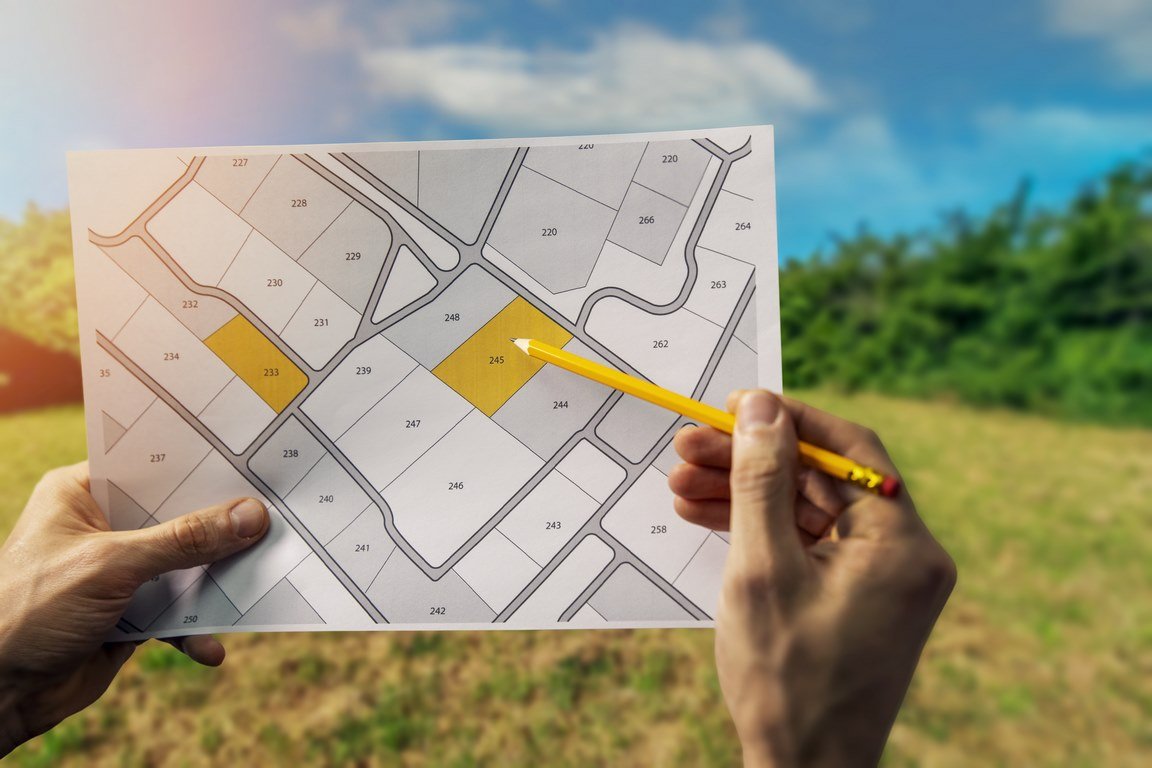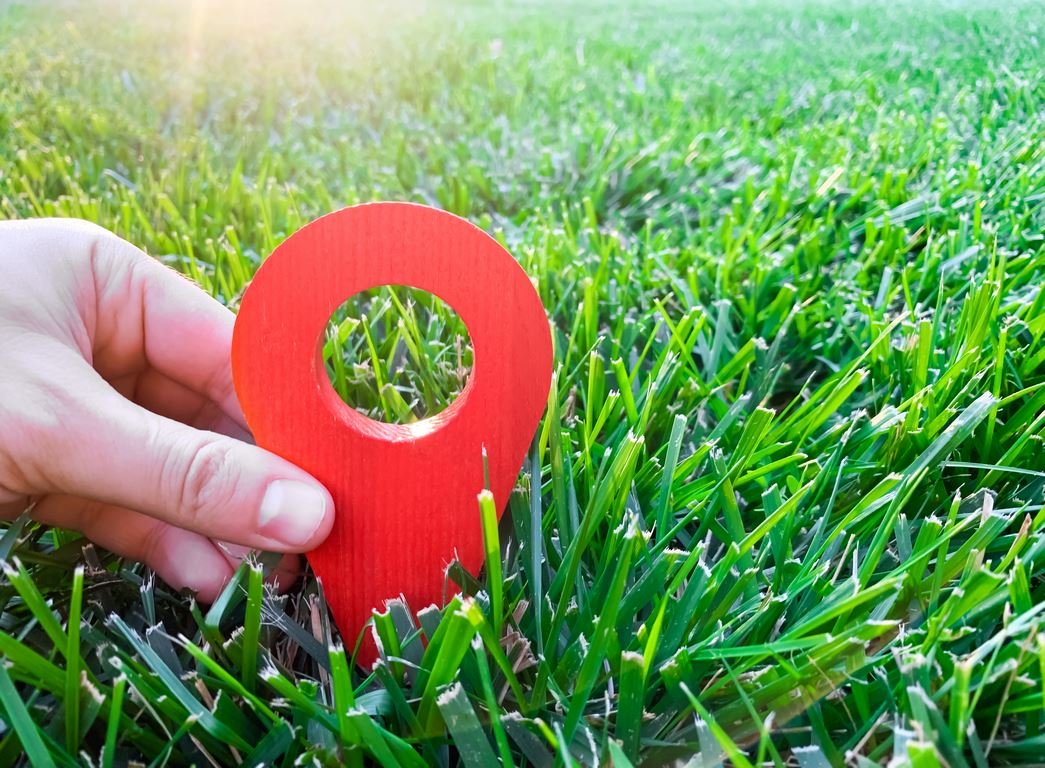Table of Contents Show
Owning your very own piece of land is certainly a dream. Whatever the purpose you intend to have it for, the land is always a good investment.
But, remember that finding the perfect one isn’t easy. You’re going to pass through so many considerations, to ensure that you’re buying the best possible choice.

After all, land can also be expensive. For it to be a good asset, it should be free of any of the elements that can hamper its functionality.
When you start your search process, you’ll find that there can be an overwhelming possibility of options that’ll only make the decision a tad bit more challenging.
Even if you keep your search saturated to a small area, there’ll surely still be a lot. The land is a commodity with good demand.
Perhaps many landowners who’ve found no purpose for holding on to their property now would rather sell it for a very attractive price.
If you’re soon headed in this direction, you’ve come to the right place. Here’s the list of some of the most important things you must first have to know about your land.
1. The Water Source
The water source of land is one thing to consider. Unfortunately, there are so many buyers that make the mistake of not asking about the availability of a water source immediately.
It’s important to ask the owner or the seller about this so that you’ll know whether you can immediately have a water connection or not, or if you need to drill your own well, or even collect rainwater.
This is also paramount, as the readily available water source is necessary once you start building septic tanks, sewer lines, and plumbing networks.
To ensure you’re doing an accurate job building these, you’ll want to get in touch with experts from AAA Sewer Service.
It’s one of the most common horror stories of property buyers that long after paying the purchase price on the land, they’ll find that at the moment, the water lines are so bad.
So, they’re living in a home with a very poor water connection.
That said, here are some of the important points you should know about septic tanks, concerning your land:
- The septic tank is one of the most important, but also one of the most neglected parts of any residential property.
Having one can spell a significant difference on how you’ll better manage your waste. Unknown to many, the septic tank doesn’t just contain waste from a property’s bathrooms, but also from the kitchen itself.
- The septic tank needs to be maintained regularly, but this can also be well taken care of through proper maintenance.
Just be sure that the land you own or you’re going to buy can be well suited to have a septic tank and all its parts like the drain are well-fitted in.
Accordingly, there are also some insights on sewer lines that’ll come in handy for you to know:
- One of the worst things that can happen to your home’s sewer lines is when it gets clogged up. When this happens, don’t try to fix the problem by yourself.
Since you don’t have that much experience and for this is a highly technical job to accomplish. It’s always best to leave it in the hands of the experts.
The most important thing you should remember is to never make your sewer line as your garbage can. Don’t dispose of anything down the drain that you know the sewer line won’t be able to handle well enough.
- As the homeowner, it’s important also for you to be able to determine the signs of a blocked sewer line. That way, you can provide a solution to it, right before the problem worsens.
These would typically include telltale signs such as that the drains are getting too slow to empty, there are sewage odors in your home, and the toilet doesn’t flush properly.
You should double-check all these things to make sure that they won’t cause any problem in the future.
2. The Paperwork
Buying land will be filled with so much paperwork to approve. Without all the paperwork to process, it’ll be difficult to transfer the land in your name.
While these may all seem like a headache to complete, it’s nevertheless essential. Otherwise, the absence of any of these important paper works may only lead you to more problems in the future.
That said, here are some of the most important documents that you need to prepare or double-check:
Title Deed
At the very least, never buy land without seeing a copy of its title deed, even if the seller will give you their assurance that the title is clean or free of any liens and deformities.
Make sure that the land is titled to the person who’s selling your property, and that the same seller has the full right to sell, or dispose of the property without the need of another possible landowner’s consent (as in the case of mother titles or family titles).
If you don’t have any prior experience yet with buying land and you don’t know how to check through it, you can ask the help of a lawyer to check the original deed.
Tax Receipts and Other Bills
Before you purchase a certain property, it’s also very important that the previous owner has already cleared all dues on the land, such as property tax. Don’t be the one who’ll catch or shoulder these outstanding bills.
Encumbrance Certificate
This is another document that’s necessary to show that the land you’re going to buy isn’t tied down by legal debt.
General Power of Attorney
This document is necessary if the seller isn’t the owner of the land. This will prove that the seller you’re dealing with is given the authority to sell the land, on the owner’s behalf.
Read Also:
3. The Building Opportunities
As you evaluate a piece of land that you’re keen on buying, make it a point to assess the building opportunities that the land has.
For instance, the selling price is quite low but the land isn’t flat. It’s uneven and there are slopes.
When the time comes for you to start building, you’ll have to do backfill, construct culverts, or even design the building or home so it abides with the slope.
The danger with this is that you may be paying less on the sales price, but in the long run, you could be up for costly expenses.
Had you chosen a cleaner and flatter land instead, even if the price may be slightly more expensive on the get-go, at least you no longer have to go through the expenses of developing the land to make it build-worthy.
4. The Location
Of course, location is always one of the topmost considerations when buying a piece of land. Location will always top all other things to consider, alongside budget.
This is because the location is the key. From it follows all other effects of the land – both positive and negative.
Typically, the location will also depend on the preference and need of the buyer. So, make sure to assess the location based on how it can potentially be good for you – and not that of your agent, or anybody else.
For example, this certain land you’re looking at right now was consistently considered as unattractive by previous buyers.
But, that’s because the land sits in a semi-rural area. It’s away from schools and offices. It so happens that the previous potential buyers were young families with young children.
Their needs are different. But, let’s say you’re a buyer with grown-up children, and you’re looking for a place to retire.
It should be immaterial to you that this semi-rural location of the land doesn’t have any schools nearby.
Moreover, factor in also the purpose you have for buying the land. If you wish to develop it into a rental property, then you may want to have it close to where the important offices in town are.
But, if you’re looking for one to turn into a farmhouse, vacation home, or boutique hotel, then you don’t necessarily need to be so saturated in the city center.
5. The Zoning Restrictions
The zoning restrictions of a property are generally governed by local laws. Hence, this is something you’ll have to check yourself from your local office, depending on where you’re reading this from.
There’s no uniform approach to this, as it differs from state to state.
Local zoning bodies have their respective rules regarding what block of land can be used for specific purposes. The most common of these classifications are agricultural, residential, commercial, and industrial.
This is very important for you to identify, as you wouldn’t want to build a commercial property on a piece of land that’s still classified as agricultural.
In most instances, this would be illegal, so you could be in for some legal trouble.
Moreover, the zoning restrictions can also affect the attractiveness of your building development in the future.
Certainly, you wouldn’t want to build your retreat home in an industrial area where your neighbors are factories emitting smoke and other toxic substances nearby.
6. The Threat of Natural Hazards
Natural hazards are unpredictable. Ideally, you wouldn’t want to purchase property in a location that has long been identified as a prone victim to natural hazards.
You can determine this by asking about the reputation in the area, or even checking with your local weather authority.
For example, there are areas in a town that are more prone to landslides, because it sits where cliffs and mountain areas are.
While the view may be great, be sure to weigh the potential threat with the enjoyment of living in a property with a view. The same holds true for properties that are prone to flooding.
7. The Bigger Investment Picture
If you’re buying land for investment or development purposes, then you’ve also got to assess and study the bigger investment picture.
While land generally appreciates, not all land is created equal. Some have become well-loved locations for bigger companies developing commercial buildings, apartment rentals, malls, and the like.
Hence, if you’re keen on purchasing land for commercial purposes, then these areas have the biggest investment picture in the future.
But, if you’re only looking for one to build a home for you and your family, then you need not be so concerned about commercial developments surrounding it.
A good trick to abide by is to follow one rule in stock investing known as value investing. This means selecting undervalued stocks and waiting for their appreciation.
The same holds true for land. If you search well and thoroughly, you’ll come across land that’s still quite undervalued, but holds a promising potential of fast appreciation.
These options can work well to your advantage which is investment-wise.
8. The Climate
The climate in the area where you’re going to buy property is also another necessary thing to consider.
You wouldn’t want to end up buying a property that you intend on converting into a holiday villa in a locality that’s famous for bad weather and rain.
Most importantly, do note that the climate in the area you’re buying from can affect so many of your future decisions when building your home, such as:
- How you’re going to insulate your building or home;
- Health conditions of members of your family, as some are greatly affected by temperature, such as asthma;
- The kinds of plants and vegetables you can grow, particularly if you’re buying land for agriculture purposes, or to set up a farm, or if you’re the type of family who grows your own crops for consumption;
- The energy consumption, as if the weather is too dry, you’ll have to be very dependent on your air conditioning system and this can make your bill escalate quickly;
- The possibility of drought, frost, and other extreme weather conditions.
9. The Presence of Any Easement on The Property
An easement refers to a legal right granted to a certain person to use a specific property for a determined, defined, and specific purpose. This easement is also generally time-bound.
If there’s an easement on the title of the land you’re looking to buy, it’s very important that you’re also aware of this immediately.
For instance, if the land has a current easement that allows certain neighbors or individuals to pass through it to gain access to another lot or their own homes, then this can impact your comfort and privacy in the property.
As much as possible, you’ll also want to select a piece of land without any existing easements.
Conclusion
When it comes to investing in real estate, the land is always a well-loved choice. Simply because for the most part, the land is slated to be an appreciating asset.
This means that over time, the value increases. Even when you don’t develop it immediately, while it sits there, it’s growing and is value-wise.
To enjoy its maximum benefits, it’s not just enough to have any piece of land. You’ve got to ensure that what you’re buying is a good option.
The flaws and defects are minimal and the title is clean. If you’re headed out to the property market soon, take this list of things to consider, so you can use this as your checklist.










